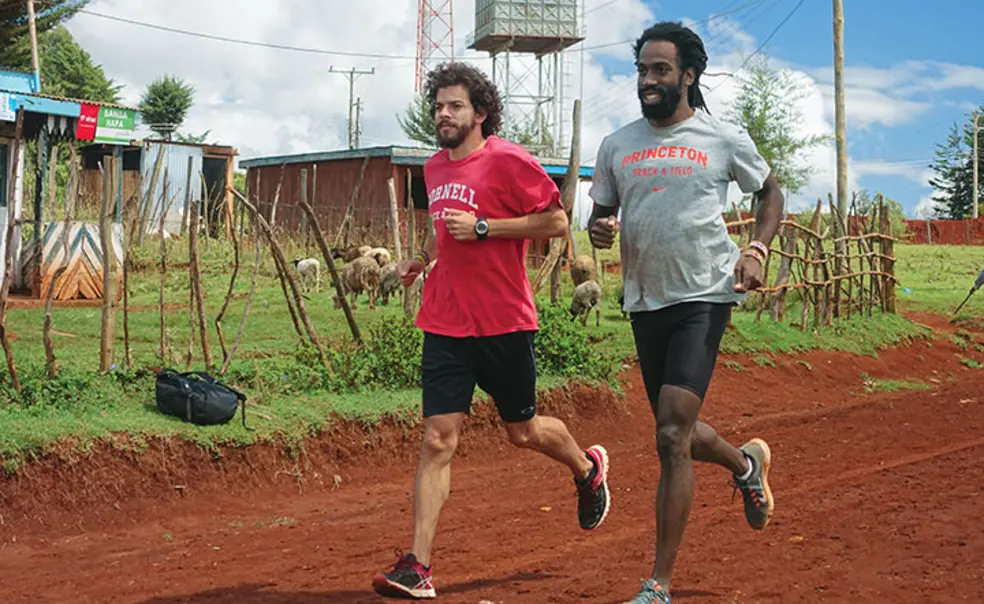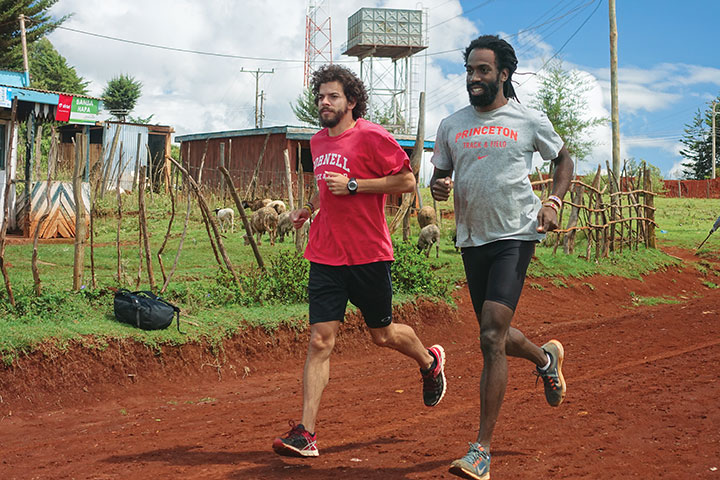The Road to Rio: Former Rivals Dinkins ’13, Thomas Unite To Pursue Olympic Dreams
Elite athletes regularly make sacrifices in their quest to reach the Olympics. For many who have Olympic potential, the task appears too daunting: They can’t bring themselves to make the commitment necessary to capture that coveted berth. They let the dream slip away.
Track athlete Russell Dinkins ’13 and his one-time Ivy League rival Daniel Thomas, a 2012 Cornell graduate, are not backing down. Since late September, the two 800-meter specialists have placed other aspects of their lives on hold to spend four months training at the world-renowned High Altitude Training Center in Iten, Kenya — thanks to financial support raised through the crowdfunding website GoFundMe.
Dinkins, a Philadelphia native, and Thomas, whose dual citizenship allows him to compete for Mexico, aim to meet the Olympic qualifying standard and earn spots on their respective national teams.
One of the most decorated middle-distance runners in Princeton history, Dinkins holds the school indoor records in the 800 meters (1:48.29) and the 500 meters (1:01.70), and was a member of three record-setting relay teams, including the distance-medley relay squad that captured the NCAA indoor crown in 2013. Soon after graduation, his running career began to sputter as injuries and the challenge of juggling part-time jobs blunted his attempts to compete against the sport’s elite.
Dinkins did not know Thomas well during college, but they reconnected through coach Kevin Thompson, a longtime friend of Dinkins’ family and Thomas’ mentor at Cornell. Princeton and Cornell have dominated Ivy League men’s track and field for more than a decade, and Thomas said the rivalry generated respect. “We went out, we gave it all we got, and after the race we realized it was cool to get together and compete,” he said. “There is no other league that really prizes its championships as much as we do.”
Dinkins, who had been training at Princeton, clearly remembers the moment he decided to commit to the Kenya trip, which allows him to run with reigning Olympic champions David Rudisha and Mo Farah. “I was on the phone with Coach Thompson,” he recalled with audible emotion, pausing to regain his composure. “I had to make a decision for myself. I knew that in 2016, if I didn’t do anything drastic and change my situation, the same thing would occur that happened the year prior: trying to work through an injury, not really getting anywhere.”
“Being on campus, I got the sense that I was being viewed as just someone who was hanging around and helping out — and not someone who was very serious about his training. That was something that was weighing on my psyche,” Dinkins admitted. “I needed not only to show other people, but also prove to myself that I am serious about this, that I really want it.”
While making an Olympic team is the ultimate goal, the chance to train unbridled by the constraints of everyday life comes with another benefit: Dinkins and Thomas are about to learn just how good they can be.











No responses yet